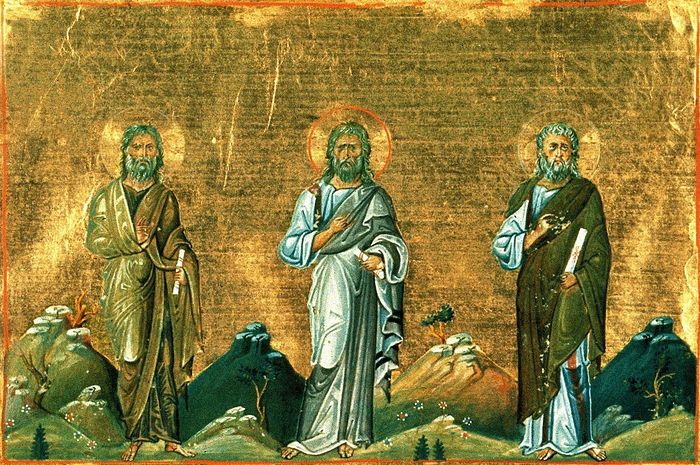 The two last Sundays before the Nativity of Christ are called the Sunday of the Holy Forefathers and the Sunday of the Holy Fathers. The Holy Forefathers and Fathers are the Old Testament relatives according to the flesh of our Lord Jesus Christ, beginning with the holy ancestors Adam and Eve, Abel, Seth, Enoch, Noah, and his sons, the holy patriarch Abraham, and so on up to the glorious Nativity of Christ.
The two last Sundays before the Nativity of Christ are called the Sunday of the Holy Forefathers and the Sunday of the Holy Fathers. The Holy Forefathers and Fathers are the Old Testament relatives according to the flesh of our Lord Jesus Christ, beginning with the holy ancestors Adam and Eve, Abel, Seth, Enoch, Noah, and his sons, the holy patriarch Abraham, and so on up to the glorious Nativity of Christ.
Who are the Holy Forefathers, and why do we commemorate them before the Nativity of Christ?
Prophet Daniel
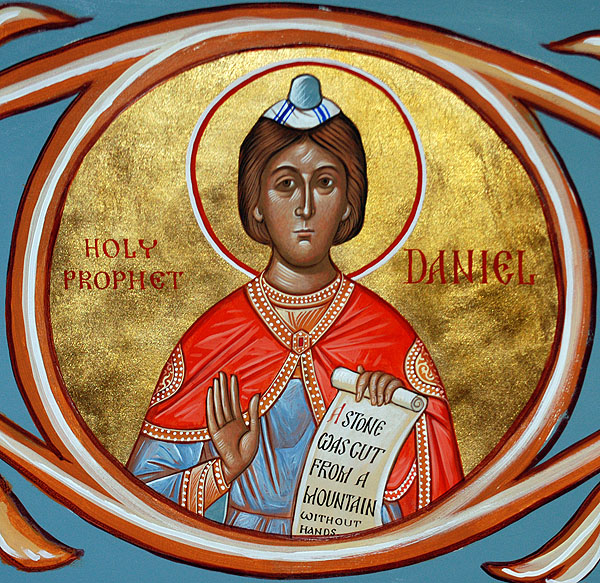 The Holy Prophet Daniel is the fourth of the major prophets.
The Holy Prophet Daniel is the fourth of the major prophets.
In the years following 600 B.C. Jerusalem was conquered by the Babylonians, the Temple built by Solomon was destroyed, and many of the Israelite people were led away into the Babylonian Captivity. Among the captives were also the illustrious youths Daniel, Ananias, Azarias and Misael.
King Nebuchadnezzar of Babylon ordered that they be instructed in the Chaldean language and wisdom, and dressed them in finery. Handsome children of princely lineage were often chosen to serve as pages in the palace. For three years, they would be fed from food from the king’s table. After this they would be allowed to stand before his throne. Daniel was renamed Baltasar, Ananias was called Shadrach, Misael was called Mishach, and Azarias was known as Abednego. But they, cleaving to their faith, disdained the extravagance of court, refusing to defile themselves by eating from the king’s table and drinking his wine. Instead, they lived on vegetables and water.
Venerable Gregory the Silent of Serbia, founder of Grigoriou Monastery, Mt. Athos
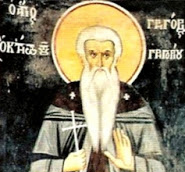 Commemorated on December 7/December 20
Commemorated on December 7/December 20
Gregory was a Serb by birth. He was the founder of the Monastery of St. Nicholas on the Holy Mountain, known as ``
On Learning of God Through Nature
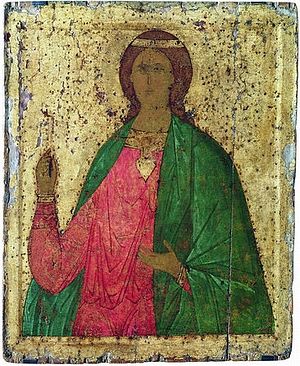 In the Name of the Father, and of the Son, and of the Holy Spirit!
In the Name of the Father, and of the Son, and of the Holy Spirit!
The heavens declare the glory of God; and the firmament showeth His the work of His hand (Ps. 18:2).
O Lord , our Lord, how excellent is Thy Name in all the earth! who hast set Thy glory above the heavens. When I consider Thy heavens, the work of Thy fingers, the moon and the stars, which Thou hast ordained; What is man, that Thou art mindful of him? and the son of man, that Thou visitest him? (Ps. 8:2,4-5). My beloved brothers and sisters in Christ, this is how the Holy King and Psalmist David praised God, while contemplating the beauty of the universe. Likewise, the Holy, Most Laudable, and Much-suffering Great-Martyr Barbara, who is commemorated by the Holy Church today, came to know God through examining the beauty of nature created by Him.
The Vulnerable and Poor, Whose Hope is in God Alone
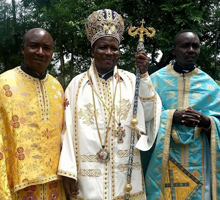 On the Successes and Difficulties of Mission Work in Africa
On the Successes and Difficulties of Mission Work in Africa
It was recently reported that His Grace Bishop Athanasius of Kisumu and Western Kenya of the Patriarchate of Alexandria fell seriously ill about a month ago and is in the ICU at St. Vincent Hospital in Worcester, MA. The news has spread quickly around social networks, and many have offered prayers and fond stories of Bp. Athanasius and the personal holiness they sense in him. Angel Karadakov, the founder of one of the most popular Bulgarian Orthodox websites, Dobrotuliuie, conducted a short interview with His Grace about five weeks ago, just before he fell ill, and Angel has graciously offered us the English text of the interview to publish.

